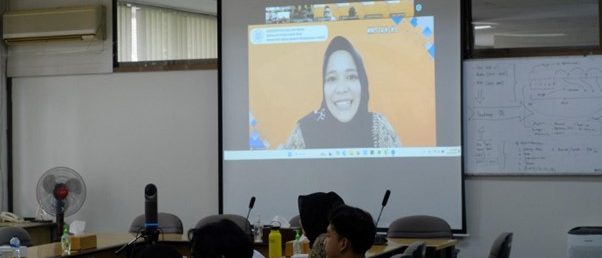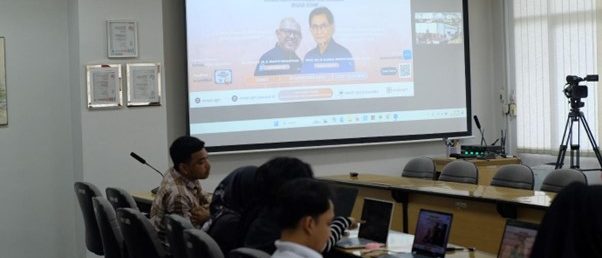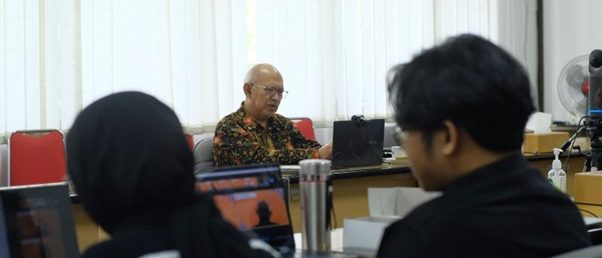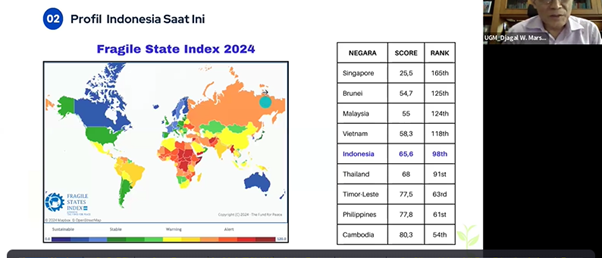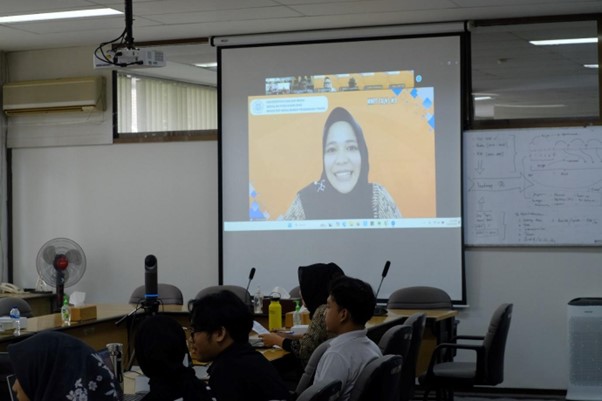
Indonesia faces significant challenges in preparing the younger generation for the upcoming era of Indonesia’s Golden Age in 2045. The Master of Higher Education Management (MMPT) program at SPs UGM held its Talks #8 titled “Strengthening Indonesia’s Higher Education Geopolitics to Achieve Indonesia’s Golden Age 2045” on November 29th 2024, in a hybrid format.
In her opening remarks, the Dean of the School of Postgraduate Studies, Prof. Ir. Siti Malkhamah, M.Sc., Ph.D., emphasized, “We are entering the era of Indonesia’s Golden Age, and it is crucial to prepare competitive, innovative, and superior human resources in the productive age.”
The keynote speaker, Prof. Dr. Ir. Djagal Wisero Marseno, M.Agr., stated that education is more than just a means to enlighten the nation. “Education is a geopolitical strategy to safeguard sovereignty, strengthen national identity, and elevate Indonesia’s position on the global stage,” he said.
He also highlighted Indonesia’s vulnerability in the global map. Based on the 2024 Fragile State Index, Indonesia is in the yellow zone, indicating vulnerability. Furthermore, Indonesia’s position at 112th in the Human Development Index (HDI) underscores the urgent need to improve the quality of human resources (HR).
“The educational gap between Java and other regions, low higher education participation rates, and the mismatch between education and labor market needs are major challenges that must be addressed,” added Prof. Djagal. Data shows that 52% of Indonesia’s workforce only has an elementary school education, while only 16% have attained higher education.
During the discussion, Prof. Djagal proposed innovative solutions, one of which is the application of the hidden curriculum to instill national values and nationalism. “The values of Pancasila, the 1945 Constitution, and Bhinneka Tunggal Ika must be revived through both formal and non-formal educational approaches so that our youth do not lose their identity amidst globalization,” he emphasized.
Additionally, the idea of creating an endowment fund at universities was also discussed as a strategic step to support quality education, especially in remote areas. “Higher education institutions outside Java have great potential, especially with their rich natural resources, to attract international collaborations and improve educational quality,” he explained.
This discussion served as a reminder of the importance of collaboration between the government, universities, society, and the private sector in building quality education. With the right strategy, Indonesia is expected to produce a golden generation that is not only intellectually superior but also prepared to compete on the global stage.
Author: Arfikah Istari

